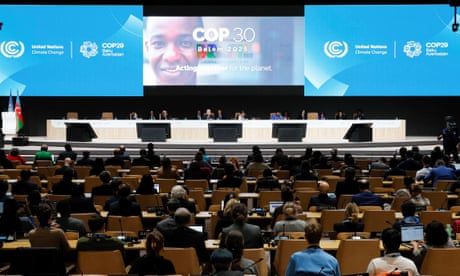
Countries agree on how to create, trade and register credits to meet climate commitments
It was once among the most promising ways to funnel climate finance to vulnerable communities and nature conservation. The trading of carbon credits, each equal to a tonne of CO2 that has been reduced or removed from the atmosphere, was meant to target quick, cost-effective wins on climate and biodiversity. In 2022, demand soared as companies made environmental commitments using offsets, with the market surpassing $2bn (£1.6bn) while experiencing exponential growth. But the excitement did not last.
Two years later, many carbon markets organisations are clinging on for survival, with several firms losing millions of dollars a year and cutting jobs. Scandals about environmentally worthless credits, an FBI charge against a leading project developer for a $100m fraud, and a lack of clarity about where money from offsets went has caused their market value to plunge by more than half. Predictions that standing rainforests and other carbon-rich ecosystems would become multibillion-dollar assets have not yet come to pass.
Continue reading...